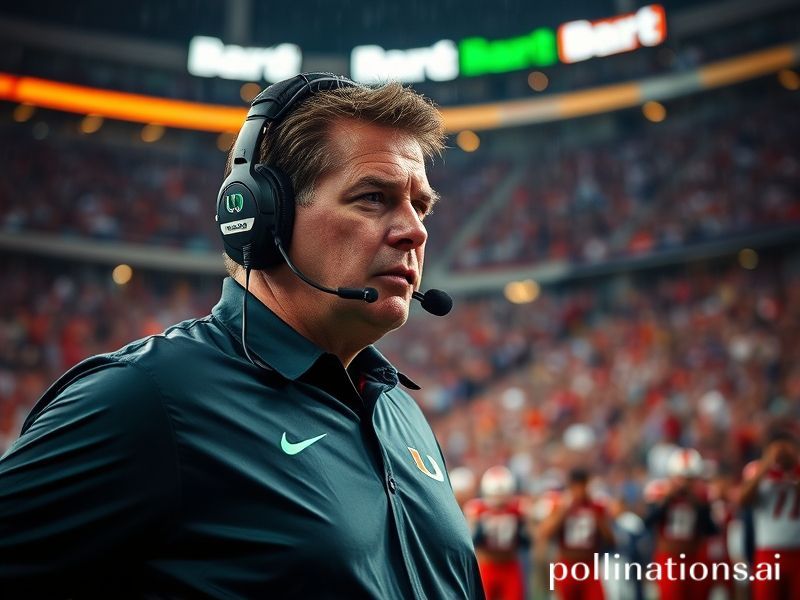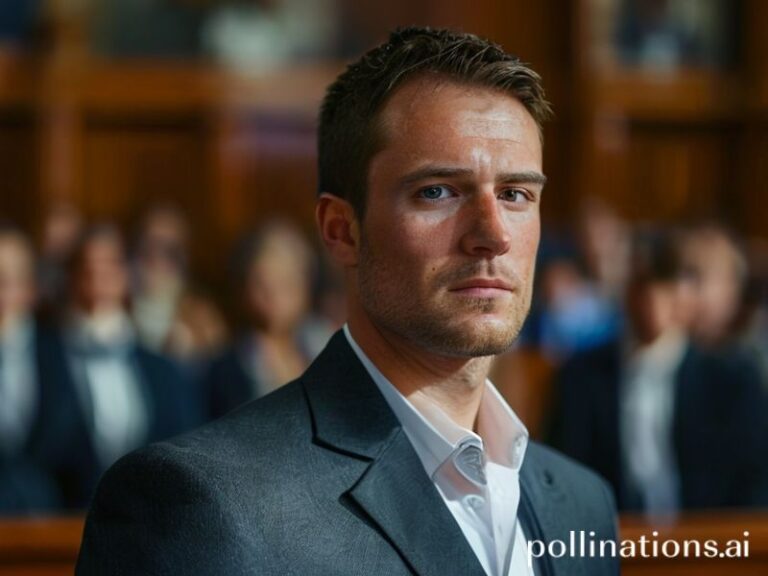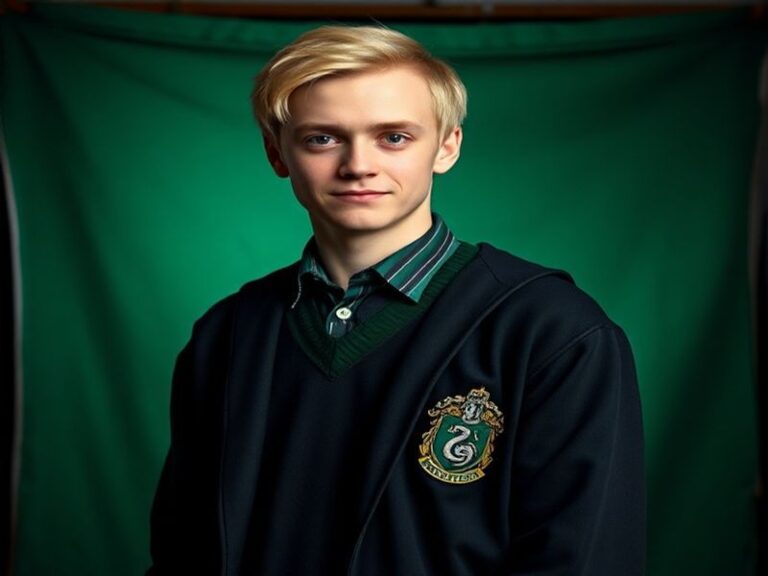From Coral Gables to the Cosmos: How Mario Cristobal’s Job Security Became a Geopolitical Barometer
Miami, Florida—The same week that COP28 delegates argued over adjectives in Dubai and the Bank of Japan toyed with negative interest rates like a toddler with a light switch, the University of Miami quietly dropped a press release that will echo far beyond Coral Gables. Mario Cristobal, the Hurricanes’ head football coach, has received yet another vote of confidence—an annual rite that now resembles the Politburo applauding itself for another record harvest. In a world where the phrase “global implications” is usually reserved for grain shortages or Russian submarines, Cristobal’s job security somehow qualifies. Allow me to explain why the fate of a man who draws plays in dry-erase marker is now a geopolitical mood ring.
Let’s begin with the obvious: American college football has become the United States’ most efficient soft-power export since jazz. From U.S. military bases in Ramstein to sports bars in Singapore, the neon Miami “U” logo now competes with Manchester United crests for wall space. Cristobal, son of Cuban exiles, is the coach of that logo. His roster is a United Nations of 300-pound teenagers: Tongan-American left tackles, Nigerian defensive ends with hyphenated surnames longer than most German town names, and, of course, South Florida kids who learned English from TikTok and Spanish from their abuelas. When Cristobal’s team underperforms—say, losing to a directional school whose mascot is, ironically, a hurricane—viewers in 190 countries see it on ESPN Player. The takeaway is immediate: America can’t even run a competent amateur sport, so why trust it to run the world order?
The numbers back up this theatrical anxiety. IMG Academy, the football finishing school in Bradenton, Florida, now attracts talent from Denmark, Australia, and even China—yes, there is a 6’7″ Beijing offensive lineman nicknamed “The Great Firewall.” All of them list Cristobal’s Miami as a dream destination, not because they’ve been to Florida (humidity that makes Bangkok feel alpine), but because the program’s brand has been laundered through Netflix documentaries and Drake cameos. When Cristobal’s teams sputter, international recruits suddenly remember they also have offers from Georgia and Alabama, and the global pecking order shifts like tectonic plates after a sneeze.
Meanwhile, the money is laughably cosmic. The Hurricanes’ collective—essentially a legal slush fund with a .org email address—recently secured a $20 million pledge from a cryptocurrency consortium headquartered in, naturally, the Cayman Islands. The donors insist on anonymity but communicate via emoji-heavy Signal messages that read like ransom notes written by teenagers. If Cristobal wins ten games, the coin goes up; if he loses to Florida State, the token tanks faster than the Turkish lira. Somewhere in Davos, a bored hedge-fund bro has hedged Miami’s third-down conversion rate against copper futures. Somewhere else, a Ghanaian data analyst is feeding sack-allowed statistics into a model that also tracks wheat prices in Odesa. Late capitalism has finally merged grain markets with goal-line stands.
And yet, the man at the center of this circus still speaks like your high-school guidance counselor who never quite learned to swear. Cristobal’s press conferences are masterpieces of bureaucratic zen: “We’re process-oriented, results will follow,” he says, sounding like the IMF assessing Argentina. He claps so much during games his palms must be insured by Lloyd’s of London. One suspects that if global leaders adopted his talent for optimistic vacuity—imagine the UN Security Council chanting “one play at a time”—we’d have fewer wars and far more punting on third down.
As the 2024 season approaches, the stakes are absurdly clear. A resurgent Miami could re-energize the ACC, bolster Nike’s quarterly earnings, and inspire a new generation of Polynesian safeties to choose American universities over French rugby clubs. Another 7-5 slog, and the whole edifice wobbles: crypto investors flee, European recruits defect to the Bundesliga, and ESPN’s international subscriber numbers look as sickly as a British rail timetable. In other words, whether Mario Cristobal figures out how to stop the spread offense is now—somehow—everyone’s problem. Sleep well, planet Earth; the fate of the free world may hinge on a 19-year-old quarterback’s ability to read a Cover-2 zone.







